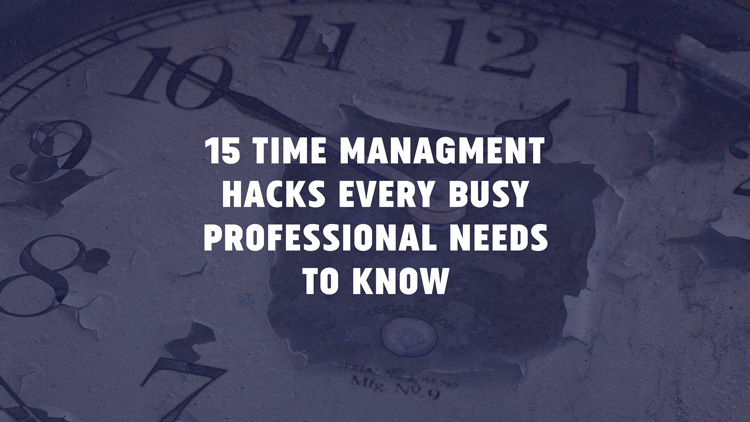- Use your ever-present phone to remind you of things.
Use timers, alarms, reminder apps, calendar notifications and the like to make sure you never miss a meeting or forget to get back to someone again.
- Audiobooks and podcasts are great resources for learning new things while you are in transit.
Your commute is a great time to consume audiobooks and podcasts about topics that interest you.
- Unsubscribe from e-mails you don’t read.
If you consistently delete e-mails from organizations without reading them, do yourself a favor and take 30 extra seconds to unsubscribe so you don’t have to deal with them again.
- Focus can be depleted just like energy, so maintain a list of “brain dead” tasks you can work from when your focus and energy are waning.
Things like organizing your desk drawers, sweeping your office, filing your piles, or cleaning up a shared space are great ways to accomplish something when you just don’t have the focus or energy to tackle difficult work.
- Complaining is a huge waste of time that accomplishes nothing. Stop doing it.
How much time would you recoup if you didn’t waste it complaining? How much could you accomplish/overcome if you chose to pursue solutions instead of complaining?
- Complete similar tasks in batches instead of doing them individually as they show up.
Collecting paperwork to process at the same time or replying to e-mail in clusters instead of one at a time are two great ways to save a great deal of time each week, but there are many more.
- Choose to be fully present and engaged wherever you are.
Participate in the meeting, enjoy the vacation, cheer your kid on at the soccer game, listen intently to the presentation. Be where you are. Completely.
- Relationships are never a waste of time, but most meetings are.
Don’t let unproductive meetings convince you that human interactions are equally unproductive. The professional relationships you build at work are incredibly important.
- Multitasking is for amateurs. Do one thing at a time.
You likely think you are better at multitasking than you really are. There is simply no substitute for choosing to give focused attention to a single task.
- Disengage from people who refuse to respect your time.
If people consistently choose to show up late – or not at all – do yourself a favor and address the issue or stop taking meetings with them. You teach people how to treat you.
- Choose the most important item to accomplish on a given day.
It shouldn’t surprise you that your day will be full of surprises. You will need to renegotiate many of your plans throughout the day, but being clear about the one thing you are committed to accomplish will make you surprisingly effective in spite of the surprises.
- Wasting time isn’t a waste.
Taking a walk to clear your head, pausing to watch a funny video, or spending 5-minutes chatting with a friend are all great examples of things that, in moderation, can help you do your very best work throughout the day. You can’t exert maximum effort every minute of the day, so plan occasional breaks to help prepare you for the next big push.
- Turn a big project into a series of smaller projects.
You can eliminate much of the overwhelm associated with big projects by finding the smaller, more manageble projects hidden within.
- Have a plan for the gaps in your workday.
A cancellation or unexpected delay can leave you with weird pockets of time that can be used to your advantage if you are prepared. Instead of immediately going to Facebook, try using your phone to catch up on a few articles, knock out some e-mails, or capture ideas you don’t want to lose.
- Get plenty of sleep.
Your body needs to rest to achieve peak performance. A lot of important things are going on inside you while you are sleeping – like cell and tissue repair, muscle growth, heavy lifting by your immune system, memory management, and energy renewal – that help you work smarter and push harder during your waking hours, so get some rest.
15 time management hacks every busy professional needs to know

